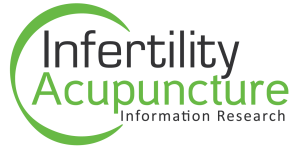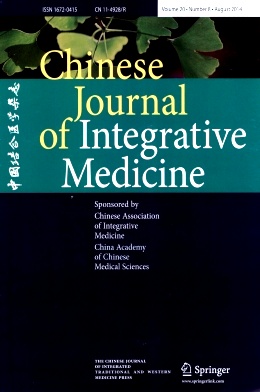Measuring the Effectiveness of Chinese Herbal Medicine in Improving Female Fertility
By: Trevor A. Wing & Elke S. Sedlmeier
Keywords: Infertility, Chinese herbal medicine, ultrasound, hormone levels.
Aim: To determine the relationship between female fertility indicators and the administration of
Chinese herbal medicine (CHM).
Design: A prospective cohort clinical study to measure accepted bio-medical
factors that affect female fertility and to determine if CHM can improve these factors as well as pregnancy outcome.
Setting: A private practice specialising in treating infertility with traditional Chinese medicine (TCM). The study took place between November 2003 and December 2004. Patient(s): Fifty women with the Western medical diagnosis of unexplained infertility.
Interventions: One monitored menstrual cycle measuring pre-treatment fertility factors, followed by treatment with Chinese herbal medicine and subsequent measurement of the changes in the same fertility factors.
Results: Significant differences were observed between the two time points for the majority of factors measured. Pregnancies in the sample group recorded 6 months after commencement of the last treatment were 28, with 11 live births and 7 miscarriages.
Conclusion: The study outcome demonstrates that using Chinese herbal medicine results in higher success rates of pregnancy, with no patient side-effects and a reduction in the category of patients conventionally classified as having unexplained infertility.
Introduction
The research question this study seeks to answer is “Does administering Chinese herbal medicine (CHM) improve the physiological factors affecting human female fertility?†The hypothesis is that administering CHM improves the main physiological factors affecting human female fertility and therefore also the pregnancy
rate. These factors are ovarian follicle number and size, uterine endometrium thickness, uterine artery
haemodynamics, serum follicle stimulating hormone (FSH), serum progesterone levels and corpus luteum
vascularity.
Research aims and objectives
1. Establish a sample group of 50 new patients registering for fertility treatment at a London natural health fertility clinic.
2. Test and record a predetermined group of twelve measurements prior to treatment during one menstrual cycle.
3. Administer CHM in capsule form for one menstrual cycle.
4. Re-test the same parameters in the third cycle of treatment, continue to administer CHM for six months (or until pregnancy is achieved if this occurs in less than six months). Follow up six months after the beginning of the last patient’s treatment
5. To determine the number of pregnancies achieved.
6. Analyse results and discuss findings.
7. Draw conclusions and make recommendations for further practice and study.
Methodology
The challenge for any investigative method when applied to traditional Chinese medicine (TCM) is that
in everyday practice, the same disease in different patients will have a different treatment principle
and herbal prescription. The information collected from the traditional Chinese examination and
assessment determines a diagnosis based on pattern differentiation and hence a treatment principle and
formula which is individualised for each patient. In our treatment of infertility there is, in addition,
a weekly modification of each patient’s formula. As there is thus no standardisation of formulae for
patients it is not appropriate to discuss the formulae themselves in this study, but rather to simply study
the effects of Chinese herbal medicine treatment on female fertility.
The method chosen was a prospective cohort primary study using a sample group of patients registered
with the clinic for TCM infertility treatment.
Patients were selected for the study on the basis that they had no Western medical condition which might have affected their fertility. In other words they were described in Western medical terms as having unexplained infertility. They also entered the study on the condition that data obtained in the course of their treatment could be used in the study anonymously.



